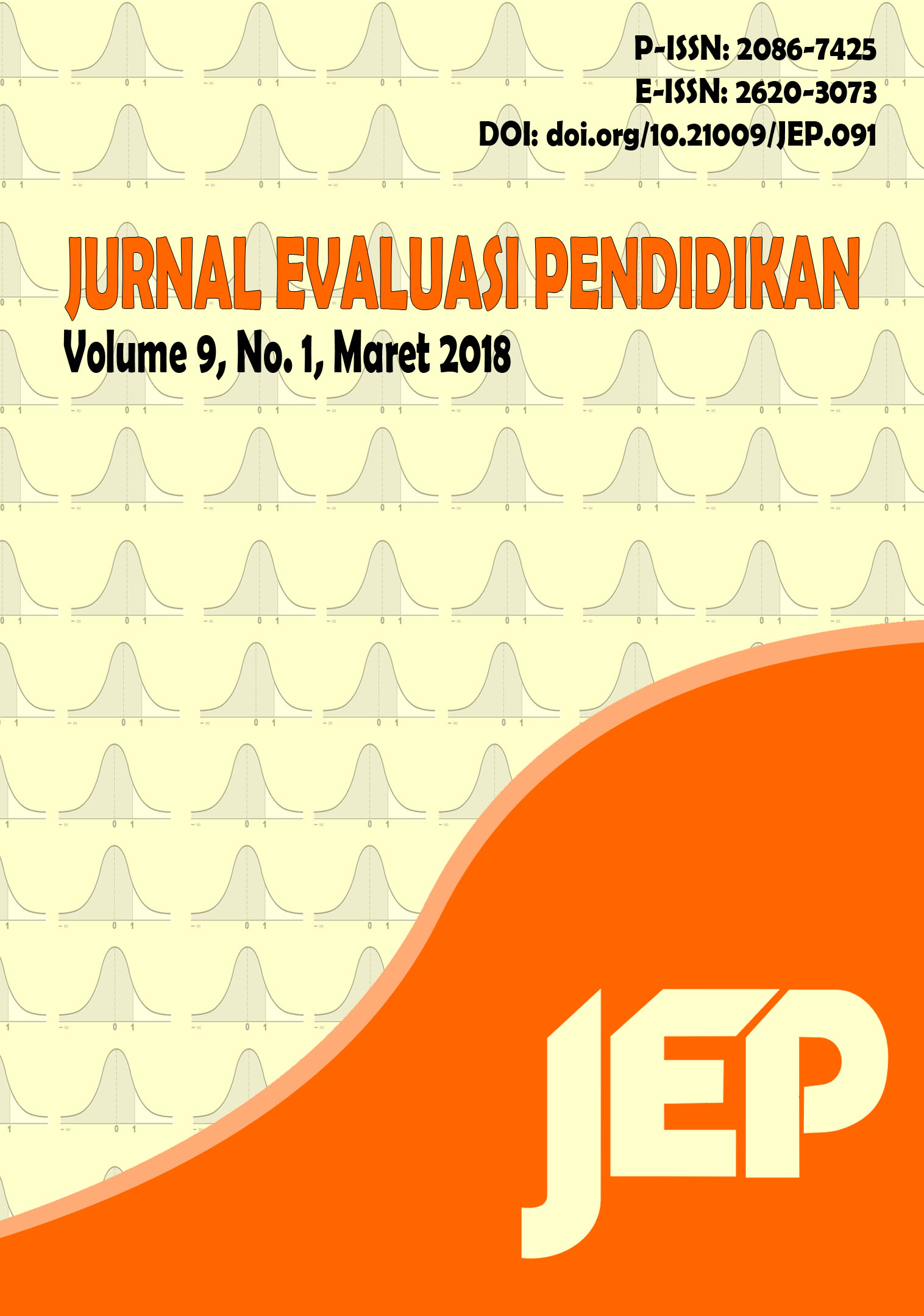PENGARUH JENIS PENYEKORAN PEROLEHAN TES PILIHAN GANDA PADA STRATEGI PEMBELAJARAN KOOPERATIF TERHADAP HASIL BELAJAR KIMIA DALAM TOPIK LAJU REAKSI
DOI:
https://doi.org/10.21009/JEP.091.05Keywords:
Types of scoring, multiple-choice test (MCT), cooperative learning strategyAbstract
This study investigated: a) Interaction effect between cooperative learning strategy and type of scoring, b) Main effect of cooperative learning strategy, c) Main effect of scoring types, and d) Simple effects of learning model toward type of scoring. The target population 923 comprised all students whose learning chemistry and 52 students grades XI were selected as a convenient sample of the study in SMKN 26 Jakarta. This study was carried out in four differents classes during October-November 2016. The instrument for obtaining data was Chemical Kinetics Achievement Test (CKAT), another six Chemical Kinetics Achievement test as formative tes were applied to the treatments groups. Both of them developed by writer. Two way of varians (ANAVA) was used to analyze the data. Post hoc comparisons using one way of Analysis of Varians (ANOVA) also used to examine there were differentiated among the four of treatment group. The findings suggest that there was no difference between using cooperative learning strategy jigsaw and STAD on students’ chemistry achievement.There was difference between two types of scoring, corrected score (CS) and number right score (NRS) in student’ chemistry achievement., CS higher than NRS. There was the interaction effects of treatment using cooperative learning strategy and types of scoring, it was mean the types of scoring efective depend on technique of cooperatif learning strategy, CS more effective to NRS if we use jigsaw while NRS more efective to CS if we use STAD.








